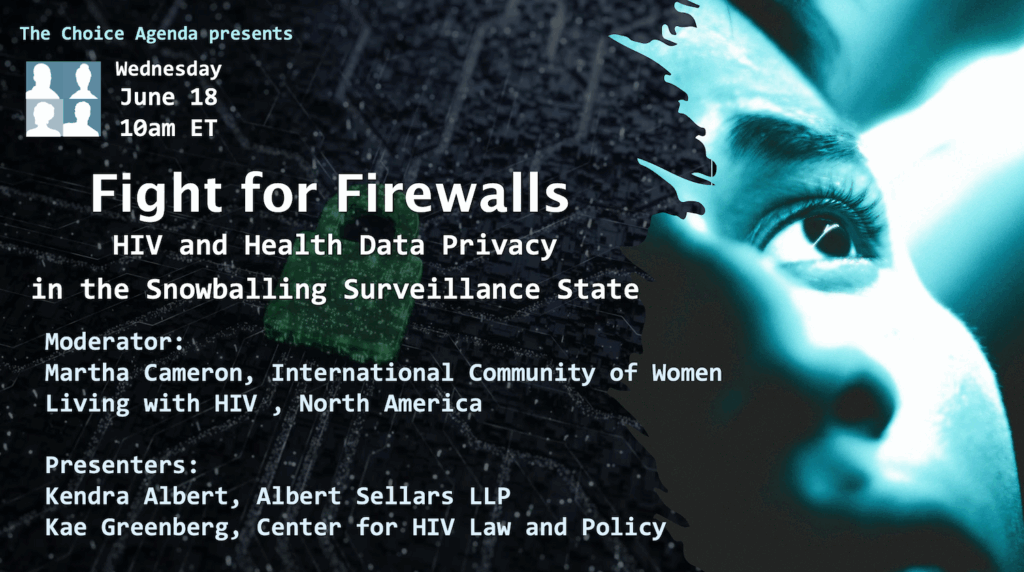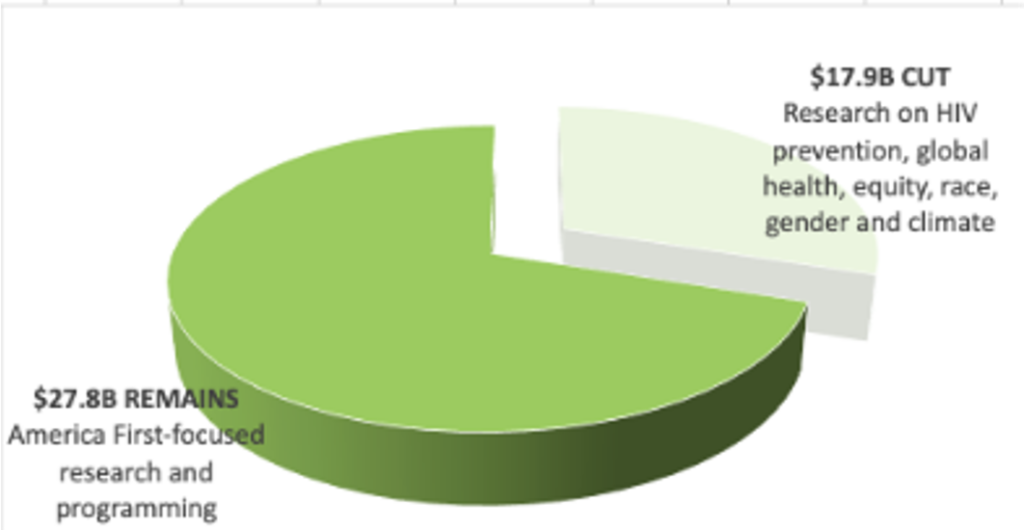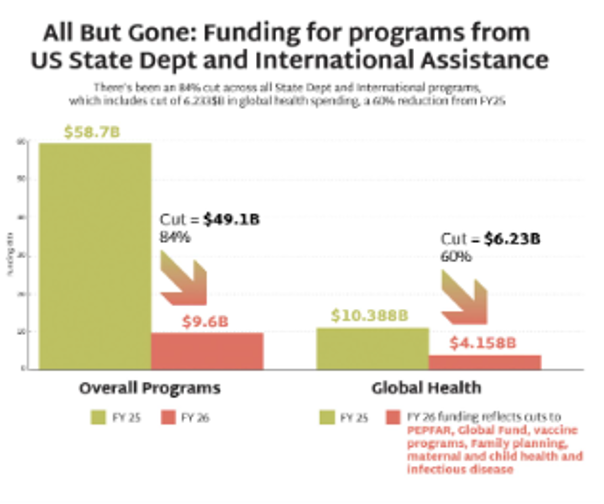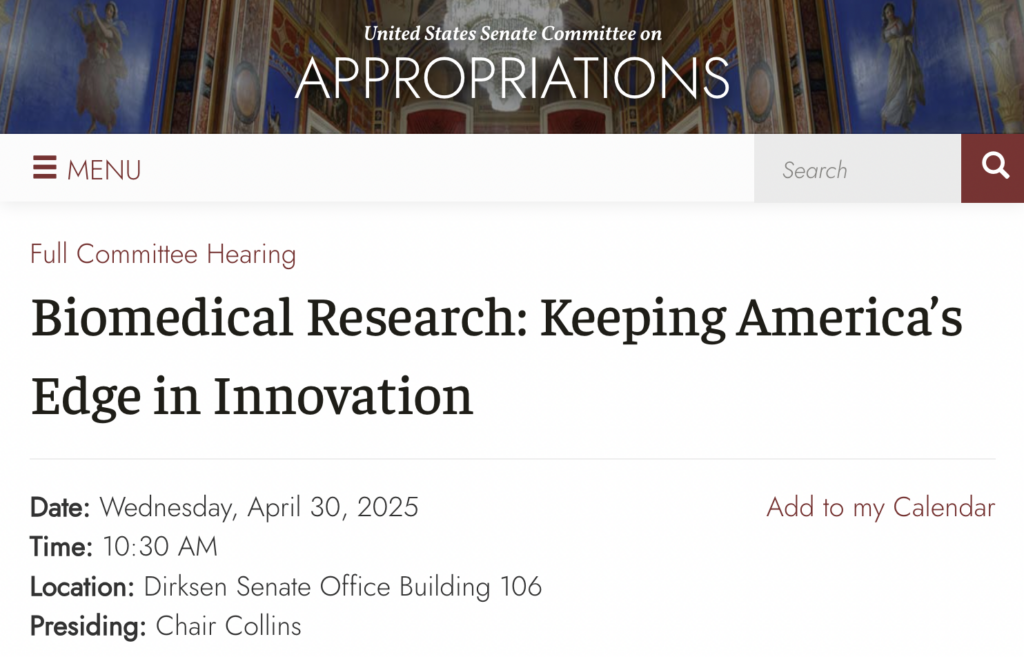It’s been 22 weeks since the US president issued the executive orders that began the chaotic dismantling of USAID. See recent, remarkable, and much-needed New York Times coverage on the destruction of USAID. And check out this new episode of the This American Life podcast on the aftermath of shutting down USAID.
We at AVAC took a public stand against this attack on global health and development in our court case, AVAC v. United States Department of State, filed by Public Citizen on February 10. We took this step because we understood the devastation that would come from such drastic and sudden divestment in the HIV response and global health. We also believe it was illegal and unethical.
In March, US District Court Judge Amir Ali ruled the foreign aid freeze was, indeed, unlawful, and that the administration had “usurped” the authority of Congress. Since that time, some 400 grants have been restored and the government is slowly complying with the Judge’s order to pay all invoices for work conducted through February 13. It’s a mere fraction of USAID’s former self, but each of these restored programs and payments represent an attempt to make America and the world stronger, safer and more prosperous. Just as important, our court case, along with a related one brought by the Global Health Council and colleagues, has forced into the public record the administration’s cynical maneuvers to dismantle global health; information that empowers advocates to fight and, we hope, finally spurs Congress to do its job.
“We cannot cede ground gained against HIV and other global health threats out of fear or paralysis in the face of these reckless actions. It is imperative to hold this administration responsible. And it’s imperative to invest in global health and sustain the gains in HIV. Global health advocates know this better than anyone, and we are fighting back,” said AVAC Executive Director, Mitchell Warren.

Watch AVAC’s Executive Director, Mitchell Warren’s video explaining how this court case is one of many critical steps to safeguard global health and the HIV response.
Nowhere is that fight to safeguard and advance HIV prevention more important than work to rollout injectable lenacapavir (LEN) for PrEP, just approved by the US Food and Drug Administration. LEN approval signals what could be a turning point in the epidemic – but only if the field invests in bold, strategic action.
“The science is remarkable, and the FDA approval is in. But it’s what happens next that makes the science count. It’s whether or not the technology is made available and becomes truly accessible that will bring impact. Will the world get it right this time? Because for 15 years we’ve squandered the potential of PrEP. That hope depends on fierce and effective advocacy,” said Warren.
HIV prevention advocates around the world are demanding and preparing for injectable LEN to reach the communities that need it most with speed, scale and equity. Watch this video for more on status of LEN rollout and advocacy priorities.
“Scientific progress has been made over the years, and we celebrate them, but without truly having a prevention story to tell…yet. Now it’s time for that story to be told,” said APHA Executive Director Yvette Raphael.
Read this report from Friends of the Global Fight Against AIDS, Tuberculosis and Malaria, Principles of a responsible transition of American leadership to end AIDS: Strategic transition or pandemic resurgence?, on how PEPFAR and US leadership can play an instrumental role in reaching epidemic control.
“There’s much work advocates are doing, and much work ahead. Some donors have come forward, but it’s only a start. We also need to advocate with regulatory authorities at the country level, not to mention pushing for an affordable price, and a big enough supply from Gilead now to support demand creation at scale in order to build a sustainable market, which in turn will support generics and further reductions in price. Advocates are now and will continue to be fighting at the country level and the global level to move all this forward,” said HEPS Uganda Executive Director Kenneth Mwehonge and co-chair of the Civil Society Caucus of the Coalition to Accelerate Access to Long-Acting PrEP.
Check out the Caucus statement on priorities for LEN rollout, and these resources to support our collective advocacy:
Recent news headlines, including the just published New Yorker magazine article by Science reporter Jon Cohen, capture the power of this moment to reshape the HIV response and finally control the epidemic. As advocates, we know the stakes very well.

“What all of us working together have tried to do for years and years and years, is to overcome the barriers from stigma to disinformation, that we’ve seen with oral PrEP, and with treatment 20 years ago. It will take Gilead, working with all of us advocates, to collectively ensure that this drug is accessible to all, so that the success depends not on the politics but on the product. We have to hold everyone, including ourselves, to account for keeping on task and for making sure that we do not squander this opportunity. So, let’s do this together and lay the groundwork for all future innovations to go faster, with speed, with scale and with equity for all,” Warren said.
The field is at a major inflection point, punctuated by both political challenges and scientific opportunity – and we can’t let the former overtake the latter.



